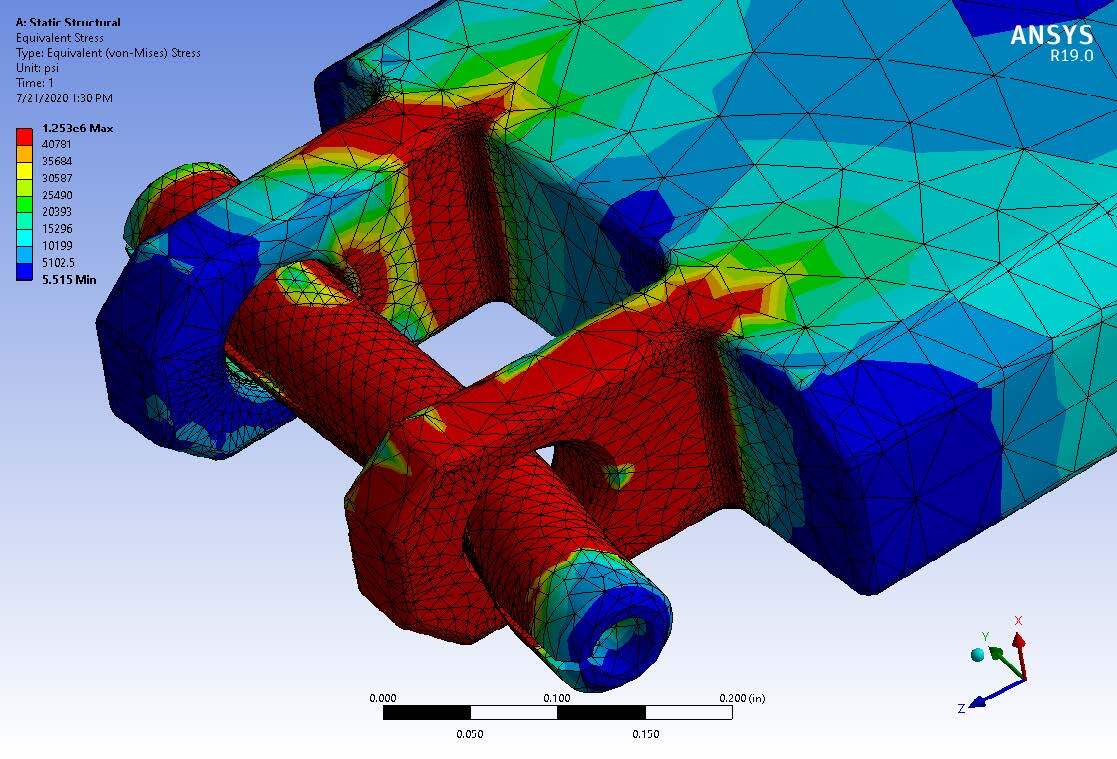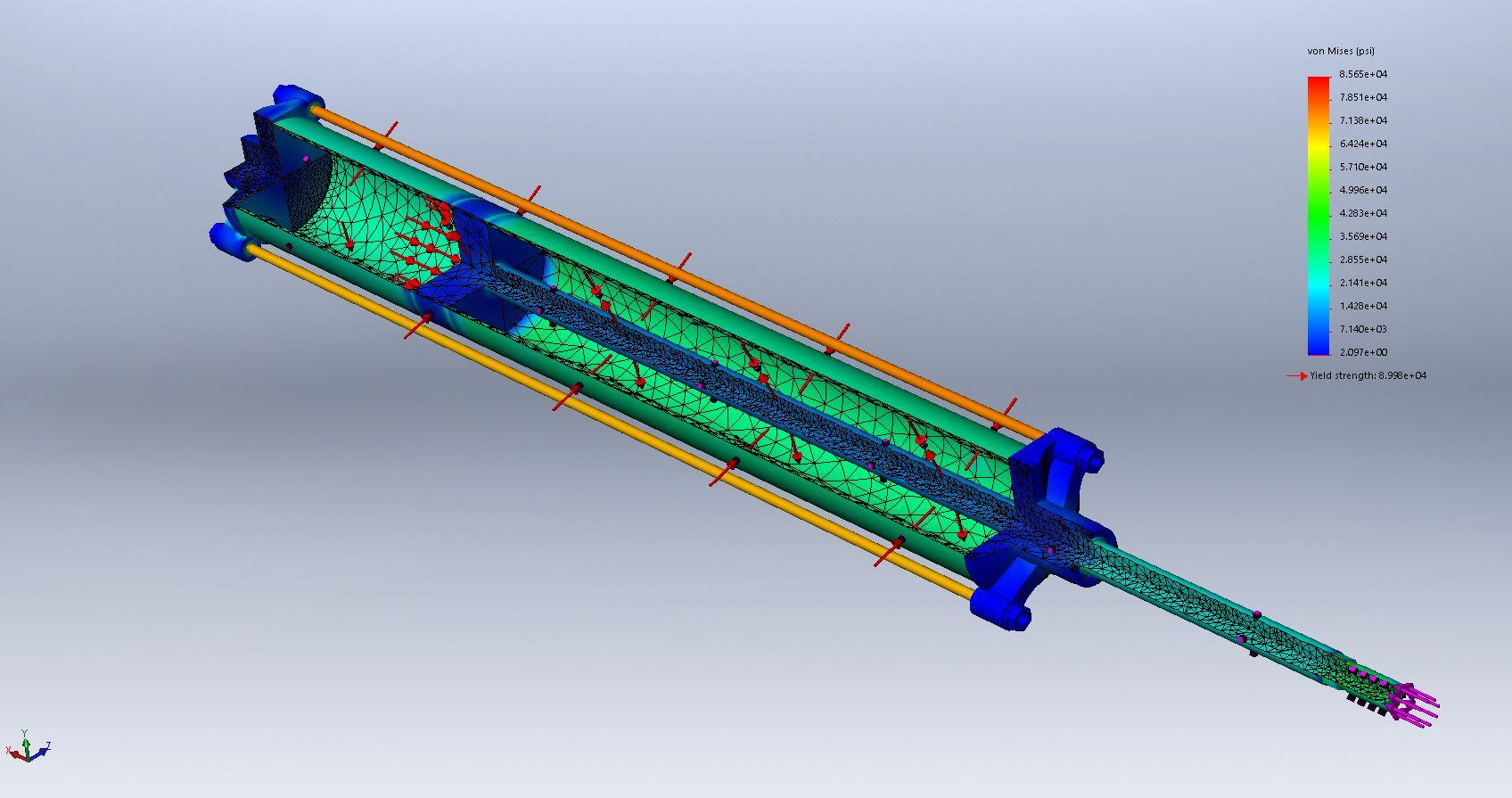Finite element analysis (FEA) is a computer process for calculating how a product reacts to forces. Finite element analysis shows whether an aerospace device will break down, wear, and tear out, or perform the way it was conceived. Because of this, information is used by the aerospace industry to supply estimates for programs and research. There is no question that when you consider the cost and time it takes to develop and launch an aircraft, an overall picture of how much it will cost over the lifetime of that aircraft will be more accurate if FEA Analysis Services has been used as the basis.
The ability to use a statistical approach in estimating the cost of research and development in any industry is something that FEA Consulting has brought to the forefront. No specific calculations are being made here, but by providing a range of possible numbers, and then using these numbers to determine if there is any correlation between several variables, or if there is a statistically significant relationship, then a more accurate picture of the costs and benefits of a proposed project can be determined. The number-crunching process involved in developing and implementing these programs makes FEA Consultants invaluable to both the military and the civilian aerospace industry. If FEA Consulting were not available to both sectors, they would use alternative methods such as a cost-benefit analysis or a cost and schedule analysis.
In addition to the military, FEA Consulting Services is useful for a variety of other industries. Because FEA Consulting Services can find patterns in time and data, it can also be used in several non-military applications. For example, if a company is interested in developing a new plane design or manufacturing process, it can create a model of how the proposed application might run. By looking at the data and statistics generated from the model, they can make better decisions based on a mathematical understanding of the form. By making better choices in terms of the applications we spend our money and time.
Finite Element Analysis is often called “FEA” by those who work in the aerospace industry. It is a mathematical method of calculating how many elements there are in each structure or part. It is based on how the items are made and their arrangement.
To understand how finite analysis can help advance the aerospace industry, you need to know what takes part in its calculations. FEA determines the amount of energy required for a structure to remain stable in any given environment. Once the energy needed for stability is known, then a material’s durability will be predicted. It will be capable of endure the differing temperatures in its environment. If the model accurately predicts the stability of the material, then it can then be used as a part of a specific type of planes, or as part of the construction process for one.
FEA Analysis Services offers several benefits to the aerospace industry, including predicting the efficiency of materials in space. This means that the plane that uses these materials will stay afloat in any environment. There is also an added benefit because it can help predict the safety of several elements. If this material is used in an individual plane, it can ensure the pilots’ safety in the flight and everyone else that is on the flight at the same time.
As the industry continues to evolve, finite element analysis (FEA) is ever more critical in manufacturing planes and other products. FEA has been around for many years and is used for a wide variety of applications. In the aviation industry, the use of FEA Consultants analysis allows planes to be designed, produced, and kept as quickly as possible. With finite element analysis, a lot of engineering time is saved, and the production process can be simplified by using data from all over the world.
As previously said, a lot of time is saved in the plane industry by using FEA Company analysis. FEA uses a series of formulas to determine the relationships among the materials, components, and functions of a plane. By having this information, the manufacturing process is simplified. It is amazingly effective in supplying quick guidance to determine whether a part is working correctly.
In the aviation industry, many finite element analyses are performed, and it is necessary to keep up with these changes. It is especially important to use these methods to determine if an airplane is safe or not. FEA Company can supply the answers needed to ensure that the airworthiness is at an elevated level. It is the foundation for designing planes, and it is also a way to determine if a product will perform as expected.
There are more than a few parts involved when designing a plane. The main reason these factors are important is that they decide what the flight will be like and how the airplane will be launched. It is necessary to have these things correct to reduce the risk of accidents or any kinds of malfunctions that can take place while the plane is in air travel.
When a plane’s model is created, it uses various finite elements to determine the shape, weight, and speed of the airplane. All of this is important to the design process because the aircraft needs to be as correct as possible. This helps in creating the model that looks as realistic as possible. It also makes the design less tedious and the overall design process much faster.
In the aerospace industry, it is necessary to use finite element analysis because it is one of the most efficient ways to create models for safe, smooth flights. If this method is used correctly, the airplane and its parts will be as realistic as possible.




